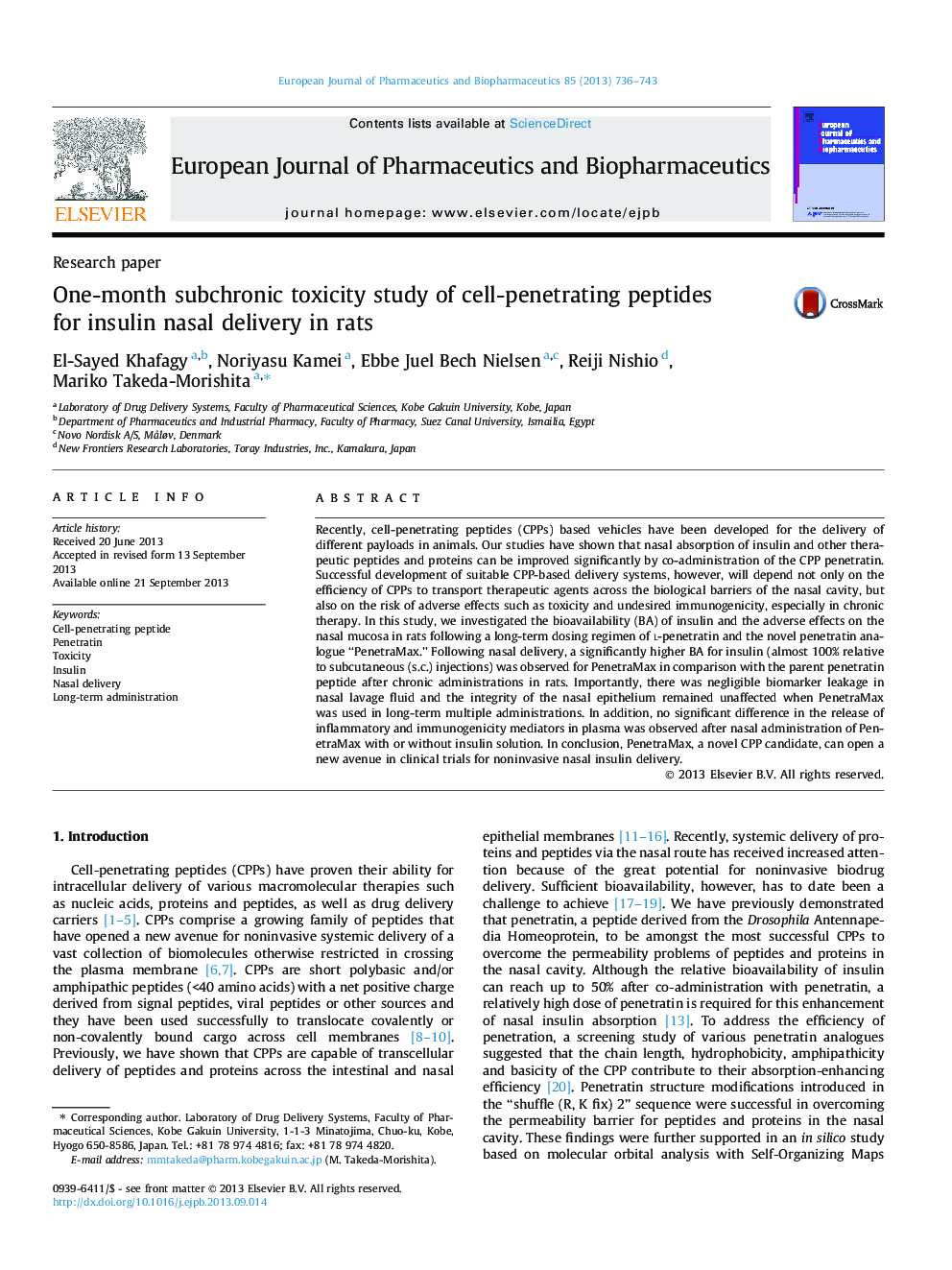| Article ID | Journal | Published Year | Pages | File Type |
|---|---|---|---|---|
| 2083741 | European Journal of Pharmaceutics and Biopharmaceutics | 2013 | 8 Pages |
Recently, cell-penetrating peptides (CPPs) based vehicles have been developed for the delivery of different payloads in animals. Our studies have shown that nasal absorption of insulin and other therapeutic peptides and proteins can be improved significantly by co-administration of the CPP penetratin. Successful development of suitable CPP-based delivery systems, however, will depend not only on the efficiency of CPPs to transport therapeutic agents across the biological barriers of the nasal cavity, but also on the risk of adverse effects such as toxicity and undesired immunogenicity, especially in chronic therapy. In this study, we investigated the bioavailability (BA) of insulin and the adverse effects on the nasal mucosa in rats following a long-term dosing regimen of l-penetratin and the novel penetratin analogue “PenetraMax.” Following nasal delivery, a significantly higher BA for insulin (almost 100% relative to subcutaneous (s.c.) injections) was observed for PenetraMax in comparison with the parent penetratin peptide after chronic administrations in rats. Importantly, there was negligible biomarker leakage in nasal lavage fluid and the integrity of the nasal epithelium remained unaffected when PenetraMax was used in long-term multiple administrations. In addition, no significant difference in the release of inflammatory and immunogenicity mediators in plasma was observed after nasal administration of PenetraMax with or without insulin solution. In conclusion, PenetraMax, a novel CPP candidate, can open a new avenue in clinical trials for noninvasive nasal insulin delivery.
Graphical abstractFigure optionsDownload full-size imageDownload high-quality image (79 K)Download as PowerPoint slide
